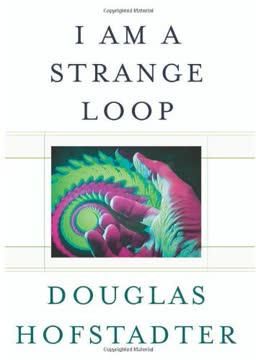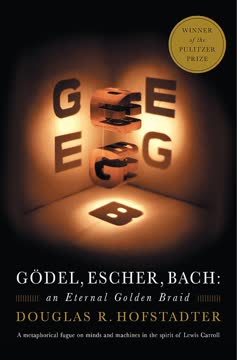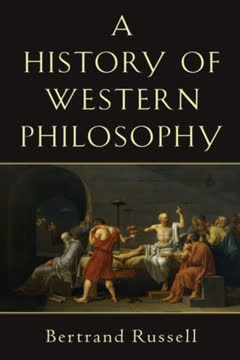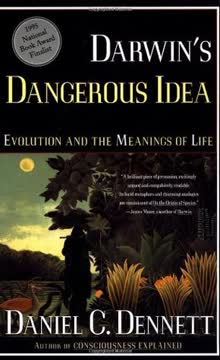重点摘要
1. 意识不是一个统一的流,而是多个内容草稿
没有单一的、确定的“意识流”,因为没有一个中央总部,没有一个“笛卡尔剧场”让“所有内容汇聚”供中央观察者审阅。
多草稿模型。 我们的大脑不是通过单一的意识流来处理信息,而是通过多个专门的电路并行处理信息。这些电路创建了各种“草稿”,这些草稿不断被编辑和修订。有些草稿会持续存在并影响行为,而另一些则很快消失。
- 多草稿模型的关键方面:
- 信息的并行处理
- 内容的不断编辑和修订
- 没有中央“观众”或“观察者”
- 草稿竞争以影响行为和记忆
这个模型解释了诸如颜色φ实验等现象,在该实验中,受试者报告在第二个刺激呈现之前看到一个移动的点改变颜色。这不是“时间上的倒退引用”,而是大脑基于可用信息的最佳解释。
2. 大脑没有一个中央的“笛卡尔剧场”来处理意识
大脑中没有一个地方,所有这些因果链必须通过这个地方才能将其内容“存入意识”。
分布式处理。 认为大脑中有一个中央地方处理意识的想法——“笛卡尔剧场”——是深刻错误的。相反,意识是从大脑各个区域的信息分布式处理中涌现出来的。
- 笛卡尔剧场概念的问题:
- 没有神经解剖学证据支持中央意识区域
- 时间问题(例如,“笛卡尔瓶颈”)
- 无法解释诸如盲视等复杂现象
大脑的结构更像是一个“喧嚣”的竞争专家,每个专家都在没有中央协调员的情况下为我们的意识体验做出贡献。这种分布式模型更好地解释了人类意识的灵活性和复杂性。
3. 语言塑造我们的思想和内在体验
从计算机的角度看自己,我们无法避免看到自然语言是我们最重要的“编程语言”。
语言支架。 语言不仅是交流的工具;它从根本上塑造了我们的思想和内在体验。它为组织我们的心理内容提供了结构,并允许我们操纵复杂的想法。
- 语言影响认知的方式:
- 提供思考的类别和概念
- 使抽象推理和计划成为可能
- 塑造我们的内部独白和自我反思
- 允许文化传递思想(模因)
语言的习得极大地改变了我们的认知景观,创造了新的思维和意识的可能性。这种“语言支架”是人类意识的一个关键方面,使我们与其他动物区分开来。
4. 感质和现象体验并不像看起来那么神秘
如果我不能与自己对话,我就无法知道我在想什么。
解密感质。 体验的不可言喻的内在品质(感质)常被视为对唯物主义意识理论的重大挑战。然而,这些所谓的神秘品质可以通过大脑的信息处理和我们对体验的反思来解释。
- 对感质持怀疑态度的理由:
- 除了我们的报告外,没有明确的证据证明其存在
- 可以通过复杂的信息处理来解释
- 经常与体验的内容混淆
与其假设特殊的“精神物质”,我们可以将现象体验理解为大脑处理、分类和反思感官信息的结果。“有体验的感觉”是这种复杂的信息处理和自我反思的结果。
5. 大脑不会“填补”缺失的信息,而是忽略空白
“填补”概念的根本缺陷在于它暗示大脑在提供某些东西,而实际上大脑在忽略某些东西。
高效表示。 与普遍看法相反,大脑在盲点或霓虹颜色扩散等现象中不会“填补”缺失的信息。相反,它通过忽略空白并从可用信息中进行概括来高效地表示世界。
- 高效表示的例子:
- 盲点:不是填补,而是忽略
- 霓虹颜色扩散:区域标记,而不是逐像素填补
- 壁纸错觉:从有限样本中概括
这种方法在计算上是高效的,解释了为什么我们在感知中没有注意到许多空白。它也挑战了意识涉及创建世界详细内部复制品的观点。
6. 意识通过三种过程进化:基因、表型和模因
人类意识本身是一个巨大的模因复合体(或更确切地说,是大脑中的模因效应),可以最好地理解为在大脑的并行架构中实现的“冯·诺依曼式”虚拟机的操作,而大脑并不是为任何此类活动设计的。
进化层次。 人类意识是三种进化过程叠加的结果:
- 基因进化:提供基本的神经架构
- 表型可塑性:允许个体学习和适应
- 模因进化:文化传递思想和心理习惯
这种分层方法解释了人类意识的复杂性和灵活性。模因尤其在塑造我们的意识体验和认知能力方面起着关键作用,使我们能够超越基因限制进行快速的文化进化。
7. 我们的自我感是一种由大脑创造的“用户错觉”
我所建议的是,体验背景中没有更多的东西。
虚拟自我。 我们对统一、意识自我的感觉类似于大脑创造的“用户错觉”。就像计算机的用户界面简化了复杂的底层过程,我们的自我感提供了一个简化的大脑分布式过程模型。
- 自我“用户错觉”的方面:
- 统一性和连续性的感觉
- 主体性和自由意志的感觉
- 详细感知意识的错觉
这种模型解释了为什么我们的意识体验感觉是统一的,尽管大脑处理是分布式的。它还解释了诸如虚构现象等现象,我们为自己的行为创造事后解释。
8. 盲视揭示了视觉处理和意识的复杂性
盲视涉及(1)接收视觉信息,(2)但仍然是无意识的。
无意识处理。 盲视现象,即某些类型的脑损伤患者可以对他们没有意识看到的视觉刺激做出反应,揭示了视觉处理和意识的复杂性。
- 盲视的关键见解:
- 视觉处理可以在没有意识的情况下进行
- 意识对于某些类型的视觉引导行为不是必需的
- 挑战简单的视觉意识模型
盲视表明,意识不是感官处理的简单结果,而是涉及额外的整合和访问过程。它还提出了关于意识体验与无意识信息处理之间关系的问题。
9. 意识体验的时间和顺序不是固定的或绝对的
因果必须先于效果的基本原则适用于完成大脑编辑工作的多个分布式过程。
灵活的时间安排。 大脑的分布式处理意味着意识体验的时间和顺序不是固定的或绝对的。相反,它们是基于大脑对可用信息的最佳解释构建的。
- 灵活时间安排的影响:
- 解释诸如颜色φ效应等现象
- 挑战固定“意识流”的概念
- 暗示意识更像是编辑而不是体验
这种观点解决了意识体验时间上的明显悖论,并解释了为什么我们的主观时间感有时会与客观测量不同。
10. 内省不是理解意识的可靠方法
我们必须打破假设越来越多的中央观察者的习惯。
内省的局限性。 虽然内省可以提供关于我们意识体验的有价值数据,但它不是理解意识底层机制的可靠方法。
- 对内省持怀疑态度的理由:
- 容易虚构和事后合理化
- 对无意识过程的访问有限
- 受我们关于意识的理论和期望的影响
与其仅依赖内省,科学理解意识需要结合行为实验、神经科学研究和哲学分析。这种方法可以帮助我们超越直观但误导的意识模型。
最后更新日期:
FAQ
What's Consciousness Explained about?
- Exploration of Consciousness: Consciousness Explained by Daniel C. Dennett examines the nature of consciousness, aiming to demystify it through scientific and philosophical perspectives. It challenges traditional views like the Cartesian Theater, which suggests a central place in the brain for consciousness.
- Multiple Drafts Model: Dennett introduces the Multiple Drafts model, proposing that consciousness is not a singular experience but a series of parallel processes that interpret sensory inputs.
- Critique of Qualia: The book critiques the concept of qualia, arguing that they do not exist as separate, intrinsic properties of experiences. Instead, they are the results of complex interactions in the brain.
Why should I read Consciousness Explained?
- Challenging Perspectives: The book encourages readers to rethink their assumptions about consciousness and the mind, offering a fresh perspective that combines philosophy with empirical science.
- Interdisciplinary Approach: Dennett integrates insights from philosophy, neuroscience, and cognitive science, making it a rich resource for anyone interested in understanding the mind.
- Engaging Writing Style: Dennett's accessible prose and thought-provoking arguments make complex ideas understandable and engaging for a broad audience.
What are the key takeaways of Consciousness Explained?
- Consciousness is Complex: Consciousness is not a simple, unified experience but a complex interplay of various cognitive processes. Understanding this complexity is crucial for grasping how consciousness functions.
- Rejection of Dualism: Dennett rejects dualism, advocating for a materialistic view that consciousness arises from physical processes in the brain.
- Heterophenomenology as Method: Introduced as a way to study consciousness objectively, heterophenomenology involves interpreting individuals' reports of their experiences while remaining neutral about their reality.
What is the Multiple Drafts model in Consciousness Explained?
- Parallel Processing: The model posits that consciousness arises from multiple parallel processes in the brain that interpret sensory information, allowing different aspects of an experience to be processed simultaneously.
- No Central Theater: Unlike the Cartesian Theater model, the Multiple Drafts model argues that there is no single point in the brain where consciousness occurs.
- Dynamic Editing: The brain continuously edits and revises these drafts, leading to a fluid and dynamic experience of consciousness.
How does Dennett address the problem of qualia in Consciousness Explained?
- Qualia Disqualified: Dennett challenges the traditional notion of qualia by arguing that they do not exist as independent entities but are results of cognitive processes and interpretations.
- Focus on Function: He emphasizes the functional role of experiences in consciousness rather than their subjective qualities.
- Empirical Approach: Dennett advocates for scientific investigation to provide insights into the mechanisms behind what we perceive as qualia.
What is heterophenomenology, and how is it used in Consciousness Explained?
- Definition of Heterophenomenology: It is Dennett's method for studying consciousness that involves interpreting individuals' reports of their experiences while maintaining a neutral stance.
- Constructing a Fictional World: This approach allows for a systematic exploration of consciousness by treating subjects' reports as creating a fictional world.
- Avoiding Bias: Heterophenomenology helps avoid biases from personal beliefs or assumptions about consciousness, focusing on what subjects report.
How does Dennett explain hallucinations in Consciousness Explained?
- Internal Stimulation: Hallucinations occur due to internal stimulation of the brain's perceptual systems, generating vivid experiences without external reality.
- Passivity in Hallucinations: Individuals experiencing hallucinations often exhibit passivity, not actively engaging with the hallucinated content.
- Cognitive Processes: Hallucinations are understood as the brain's attempts to make sense of internal signals, leading to experiences that feel real.
What are the implications of Consciousness Explained for understanding free will?
- Materialistic View of Free Will: Free will is seen as a product of complex brain processes, challenging traditional notions of it as separate from physical reality.
- Conscious Decision-Making: Conscious decision-making arises from the brain's ability to process information and generate options, grounded in neural activity.
- Revising Responsibility: Understanding the mechanisms behind decision-making can inform views on accountability, encouraging a nuanced understanding of human behavior.
How does Consciousness Explained relate to contemporary debates in cognitive science?
- Integration of Disciplines: Dennett's work bridges philosophy, neuroscience, and psychology, contributing to ongoing discussions about the nature of consciousness.
- Challenging Traditional Views: The book challenges established theories, prompting researchers to reconsider their assumptions about consciousness.
- Influence on Future Research: Dennett's ideas have influenced subsequent research, particularly in areas related to perception, memory, and the nature of consciousness.
How does Dennett define the self in Consciousness Explained?
- Self as Narrative: The self is defined as a "Center of Narrative Gravity," shaped by the stories we tell about ourselves, emphasizing language and social interaction.
- Dynamic and Evolving: The self is a dynamic construct that evolves over time as we accumulate experiences and memories.
- Interconnectedness: The self is interconnected with various cognitive processes and social contexts, highlighting the importance of relationships in shaping identities.
What role does language play in Consciousness Explained?
- Language as a Tool: Language is crucial for constructing and expressing thoughts and experiences, shaping our understanding of self.
- Influence on Consciousness: Language influences how we perceive and interpret experiences, affecting consciousness.
- Cultural Context: Language is embedded in cultural contexts, shaping narratives and identities, emphasizing that consciousness is socially constructed.
What is the significance of the "Center of Narrative Gravity" concept in Consciousness Explained?
- Identity Formation: It highlights how identities are formed through narratives, emphasizing storytelling in understanding who we are.
- Dynamic Self: The self is a dynamic construct that evolves over time, reflecting the fluid nature of identity.
- Social Interaction: The concept underscores the role of social interactions in shaping narratives and identities, influenced by shared stories.
评论
《意识的解释》评价不一。一些人赞扬丹尼特的创新思想和科学方法,而另一些人则批评他简化的观点和写作风格。许多人认为这本书具有挑战性但发人深省,欣赏丹尼特试图揭开意识神秘面纱的努力。批评者认为他未能完全解释意识或解决难题。多重草稿模型和对笛卡尔剧场的否定被视为关键贡献。总体而言,读者认为这本书雄心勃勃且有影响力,即使他们不同意其结论。
Similar Books


















